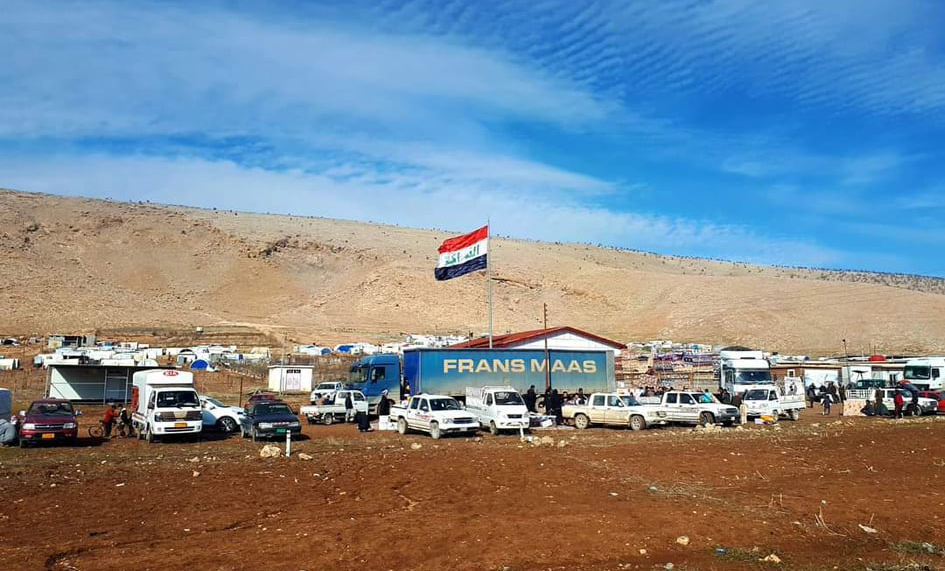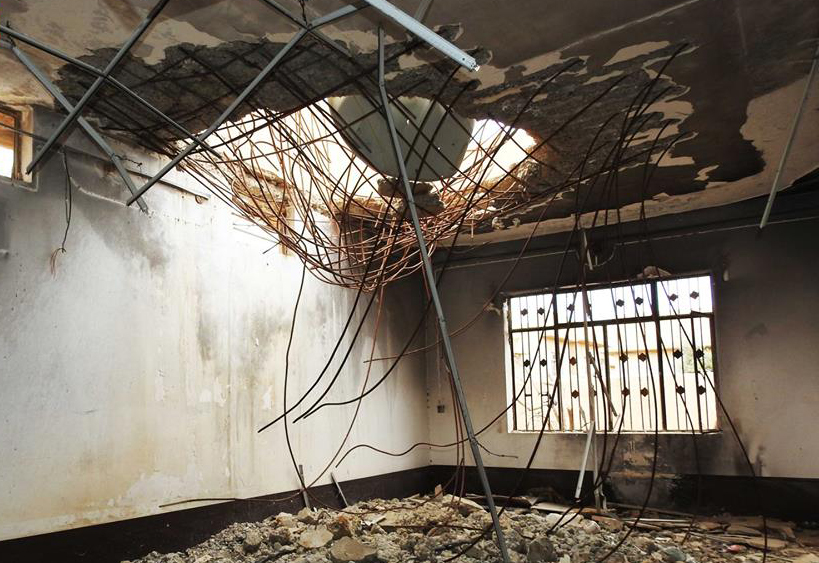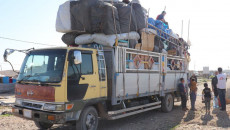After leaving the camps for the displaced, thousands of Ezidi families are still to receive the financial aid that the government promised to grant families wishing to return, while they need more than the promised amount to rebuild their lives.
According to statistics obtained by KirkukNow from government institutions and NGOs concerned with the affairs of the internally displaced persons (IDPs), only 20 Ezidi families of a total of 11,000 who submitted applications have received the grant.
The grant from the Federal Government consists of 1.5 million Iraqi Dinars (about $1,000) for each displaced family after they return to their home regions.
Nasima Hasan says that the costs of the damage done to her family's home and property by ISIS is many times the grant, and that they need more than that in order to resume their normal lives. After spending six years as an IDP, Nasima had to leave the camp and fill out the application form to receive the grant.
"My father is paralyzed and unable to work. We have a 9-member family. We filled out the application for receiving the grant twice, but we haven’t received a single dinar yet," Nasima told KirkukNow.
we are deprived of other aid like food and kerosine regardless of where we reside
Nasima's family was displaced in August 2014 from Shingal’s Giruéz (al-Qahtaniyah) subdistrict towards Mount Shingal. Most of the house in Shingal were destroyed or damaged, either deliberately by ISIS militants or during the war to expel the extremist group.
"We are now no longer considered displaced because we have filled out the grant form, so we are deprived of other aid like food and kerosine regardless of where we reside. Our life has thus become so difficult that I have no words to describe it," said Nasima Hasan.
The Federal Government closed down the IDP camps this year and sent back the IDPs to their home regions.

Ali Sha’bo, the manager of Sardasht Camp on Mount Shingal, told KirkukNow: “There are families who left the camp more than two years ago and have filled the application to receive the grant, yet they haven’t been paid.”
He says that 11,000 Ezidi families have submitted the forms at the offices of the Ministry of Immigration and Displacement to receive the grant, including more than four thousand families from the town of Shingal, five thousand families from the Sinuné subdistrict.
Sha’bo says there is discrimination in the distribution of the grant. “We have information that the IDPs from other regions, among them from Anbar and Nineveh [provinces], have been paid after returning, but it’s not known when Ezidis get paid even though there are no issues with their filled applications.”
“It wouldn’t be an issue if the aid got delayed for four or six months, but for two years is very unjust, while the amount allocated is very small compared to the size of the damages. But it is better than nothing,” Sha’bo said.
Facing financial crises due to the decrease in oil price and the COVID-19 outbreak, the Federal Government borrowed money locally and from abroad in recent months in order to be able to pay civil servants’ salaries.
there has been no discrimination in what is so far has been distributed
Askandar Muhammad Ameen, director of Duhok’s office of Immigration and Displacement Ministry, told KirkukNow that paying the grant has been stopped for a while, “but there has been no discrimination in what is so far has been distributed. There has been no discrimination between IDPs from Christian, Ezidi, Muslim or other communities.”
He added that all the families who have filled the application will doubtlessly receive the grant.
Although most of the camps in the region under the Federal Government have been closed, those in the Kurdistan Region have not, and there are still more than 730,000 IDPs, 30% of which are Ezidis, residing there, according to statistics of the Kurdistan Regional Government from October this year.
Hussein Hasan Narmo, a member of the Parliamentary Committee for Immigration and Displacement, told KirkukNow: “There is favouritism in the distribution of the IDP grant. We have been pressing the Ministry to also pay the Ezidi IDPs, and they have given us promises to do so.”
Narmo added that so far, the government has distributed the grant among the IDPs in nine stages, but that Ezidis are the smallest percentage among them proportionately. “By now, at least half of them should have been paid the grant,” he said, alluding to the 11,000 Ezidi families who applied for it.

Nearly six million people were displaced during the ISIS war between 2014 and 2017. About one million of them have not returned to their home regions yet.
Ali Omar Ga’bo, a deputy of Nineveh governor in charge of IDP affairs, told KirkukNow: “We have heard the complaints from the Ezidis about the 1.5-million-Dinar grant. We have conveyed that issue to the Ministry and they say that the Ezidis have filled out the forms later than other IDPs, that’s why the payment of their grants has been delayed.”
He added that the number of beneficiaries of the government grant in Nineveh has reached two thousand families, most of whom are from the regions of Tal Afar, Telkaif and the Nineveh Plain, and that that number included between 10 to 20 Ezidi families.
"We don’t believe in the ministry's excuses. The Minister of Immigration and Displacement pledged during her visit to Nineveh Province to resolve the issue of paying the Ezidis their grants, but she did not fulfil her promise under the pretext of the lacking money," said Ga’bo, who added that they will not abandon this issue until it is resolved.





